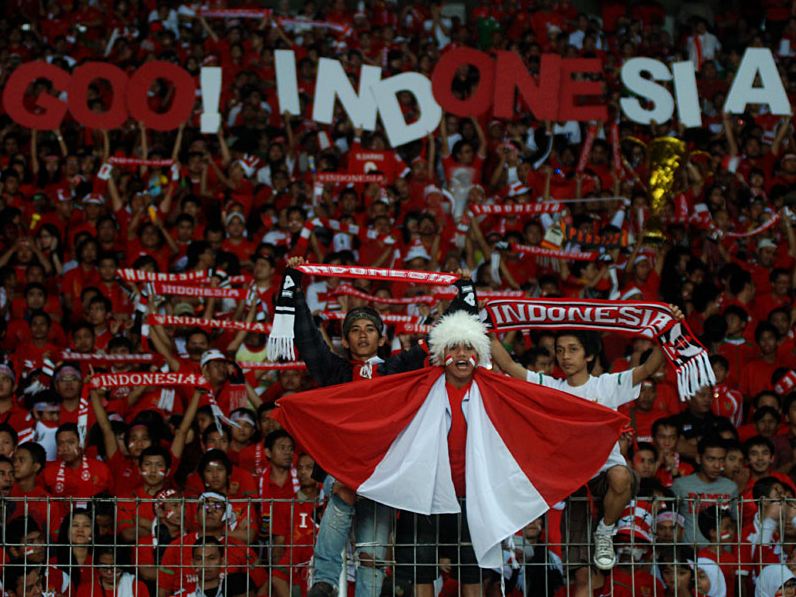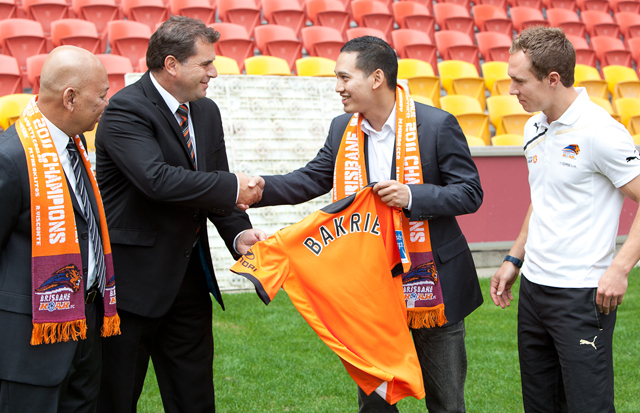The Presidential Elections will be watched by millions of Indonesians this year. It will also be one of the year’s most well-covered elections internationally, with the Obama-esque Jokowi widely expected to be elected President . Indonesia’s display of democracy will be dramatic, entertaining, and is sure to throw up many unexpected surprises along the way to July 9.
But, legislative and presidential elections won’t be the only popular contest of 2014. Football of course, will again dominate the headlines at local and national levels this year. The sport’s popularity in Indonesia is mind-boggling. Over 100 million fans will tune in for televised matches of the national team, while weekend matches covering the national league will continue to regularly rack-up over 50 million loyal viewers each week. When physical attendance of matches rival – and arguably exceed – those of Europe’s biggest leagues, it is clear just how big Football is in Indonesia.

Around 50 million viewers regularly tune in to matches of the national league. Tens of thousands attend matches in stations. Photo: infoskorbola.com
As with most things in Indonesia however, politics never seem to be too far away from power and influence. Traditionally the top echelons of political power, including Presidents Sukarno and Suharto, have influenced, and were connected to the peak football federation, or PSSI . Yet, in a contemporary context, football demonstrates a remarkable talent of mirroring broader societal changes in Indonesia. Business has come to power, and the influential Bakrie Group is now calling the shots.
Following the liberation of the PSSI in the post-Suharto era, Golkar’s presidential hopeful Abruzial Bakrie, saw an opportunity in football. In 2003, his brother, Nirwan, became PSSI Vice Chairman, while Nurdin Halid, a prominent Golkar member, became Chairman. Halid’s term as Chairman was marred by poor management and corruption scandals, best depicted during the bizarre situation when he continued to run the federation from behind bars, after he was convicted of two separate corruption charges . This arrangement however, was eventually rectified by a Yudhoyono led intervention, who requested his sports minister impose leadership changes in the organisation in 2010 .
Following the removal of Nirwan and fellow Golkar members from the PSSI, Bakrie later suppored the formation of a new rival national football league, a decision which sparked huge public protests and threw football in the country into crisis. Sponsors fled the sport, some club finances were decimated, and spectator interest and on-field playing standards crashed. Yudhoyono was pressured to convene negotiations with the two rival leagues, who finally agreed in 2013 to the reunification of a single league effective from Season 2014, with the catch being that the Chairman would remain Djohar Arifin Husin, a close ally of the Bakrie Group.

The Bakrie Group also own several football clubs around the world, including Australia’s Brisbane Roar. Photo: theroarreview.wordpress.com
The timing of Bakrie’s consolidation of football power could not have come at a more strategic and convenient time for the hopeful presidential candidate. The Bakrie Group’s media division, Visi Asia Media, now hold exclusive rights for not only the Indonesian national league, but also the coveted 2014 FIFA World Cup . In the context of Bakrie’s political ambitions, the potential viewership he will have direct access to is remarkable and a huge advantage to his failing campaign. Visi’s statements to the Jakarta Globe suggest that the network will attract record numbers during the World Cup broadcast, scheduled just a month before the Presidential Election. Additionally, matches are set to fall during Ramadan, where kick-off times are scheduled to coincide with the pre-dawn meal, virtually guaranteeing a captive audience not limited to just the early morning hard-core football fans .
All in all, 2014 is going to be a huge year for Indonesia. The elections and the revamped national football league have been eagerly anticipated for years, and will both sport an exciting mix of veteran campaigners and un-tested rookies. And while Bakrie is a long-shot for the presidency, his control of football and huge media influence, suggest he is a force to be reckoned with – and a player which Jokowi would best avoid fouling on the pitch.
……….
David Lee is a football fan studying a Master of Asia-Pacific Studies at the Australian National University
 Facebook
Facebook  Twitter
Twitter  Soundcloud
Soundcloud  Youtube
Youtube  Rss
Rss